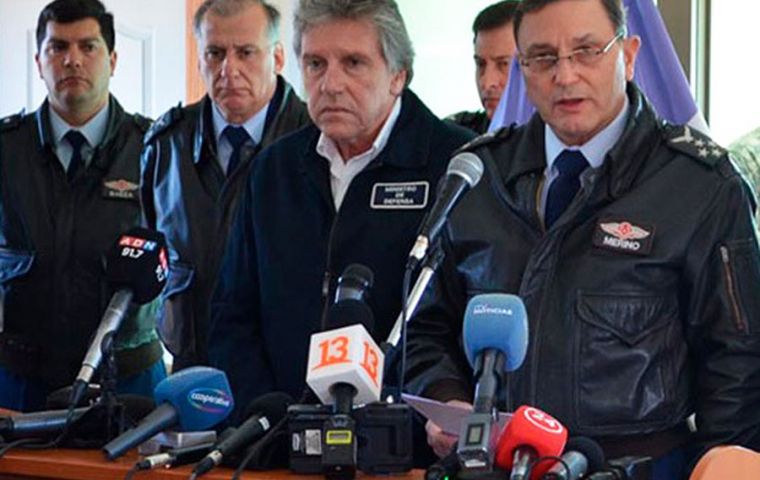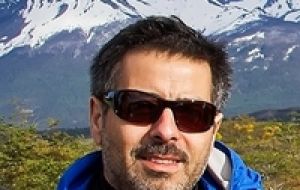MercoPress. South Atlantic News Agency
Finding survivors from doomed Chilean Hercules unlikely but trips will continue
 It “is virtually impossible for survivors to exist,” said Merino.
It “is virtually impossible for survivors to exist,” said Merino. Chilean Air Force (FACh) Chief-of-Staff General Arturo Merino Núñez Thursday ruled out the possibility of finding any survivors from Monday's Hercules C-130 transport aircraft which crashed into the Drake Passage enroute to Antarctica with 38 people onboard after human parts from the wreckage were found later in the week.
“The conditions in which they [the bodies] were found make it virtually impossible for survivors to exist,” said Merino, who also pointed out that more human remains keep appearing as the retrieve operation progresses.
Meanwhile, the Chilean Antarctic Institute (Inach) Thursday ratified scientific research trips will continue despite Monday's losses.
Over 300 scientists travel every year to the white continent. Most of those trips are carried out by either air or sea with transport units from the armed forces. In 2017 alone, the Inach and Conicyt (National Commission for Scientific and Technological Research) allocated substantial funding to 101 research projects which were a part of the National Antarctic Science Program headed by Inach.
Inach Director Marcelo Leppe explained that “life is not the same after an event of this magnitude, which becomes the most important accident in the history of Chile in the Antarctic [Sea].”
This year's campaign has started in August and it needs to move on with its logistics and personnel movement chain because obviously there are objectives to be achieved. “Trips to Antarctica are maintained, there are people there working. It is not something we can suspend overnight,” Leppe stressed.
“We have several scientific works under way. In August, we had the atmospheric projects that were linked to the Hanoi plane, a highly sophisticated German aircraft plane that flew from Argentina and Chile to Antarctica back. Also projects of microbiology, biology and marine ecology,” Leppe went on.
One of the most recurrent research lines of investigation in Antarctica has to do with pharmaceutics, thanks to the fact that experimentation is benefited by extreme temperatures, high levels of ultraviolet radiation and prolonged times of darkness. Therefore, scientists have focused on the study of certain plants that support extreme salinity forming spines on their leaves, the search for antifreeze proteins in Antarctic grass and glaciological studies in the interior of Western Antarctica.
“Inach supplies the logistics taking care of the transfers, and coordinating with our operators of the Ministry of Defense, with the Armed Forces and with private operators, because obviously when we need to transport large volumes of people or loads, we hire [from the] private [sector],” explained Leppe.





Top Comments
Disclaimer & comment rulesCommenting for this story is now closed.
If you have a Facebook account, become a fan and comment on our Facebook Page!